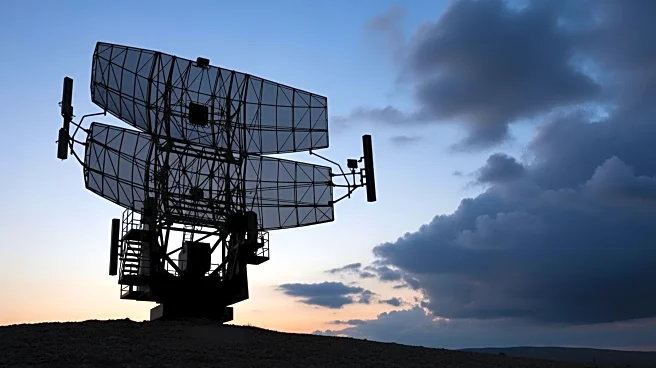What's Happening?
NATO has decided to abandon its plan to acquire the Boeing E-7 Wedgetail aircraft, which was intended to replace the aging E-3A Sentry Airborne Warning and Control System (AWACS) aircraft. This decision
follows the United States Air Force's withdrawal from the acquisition program, citing concerns over survivability and costs. The Netherlands, along with other partner countries, announced the cancellation, stating that the strategic and financial basis for the acquisition had disappeared. The remaining NATO countries involved are now exploring alternative options to replace the E-3A fleet by 2035.
Why It's Important?
The cancellation of the E-7 acquisition highlights significant shifts in NATO's defense strategy and financial priorities. The decision underscores the challenges of maintaining and upgrading military capabilities amid budget constraints and evolving security threats. The move may impact the defense industry, particularly Boeing, and could lead to increased investment in European defense technologies. The decision also reflects broader geopolitical dynamics, as NATO seeks to balance its reliance on U.S. military support with the need for greater European defense autonomy.
What's Next?
NATO countries involved in the AWACS replacement effort will continue to seek alternative solutions to meet their surveillance and control needs. This may involve exploring partnerships with other defense contractors or investing in indigenous European technologies. The decision could prompt discussions within NATO about future procurement strategies and the importance of diversifying defense capabilities. The outcome of these efforts will be crucial for maintaining NATO's operational readiness and strategic deterrence capabilities.










